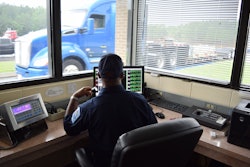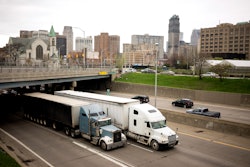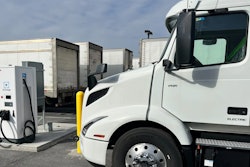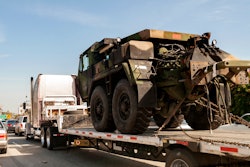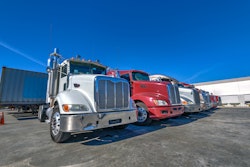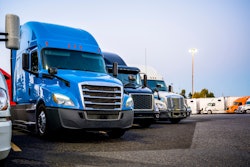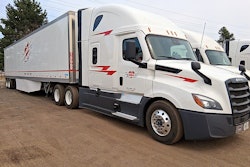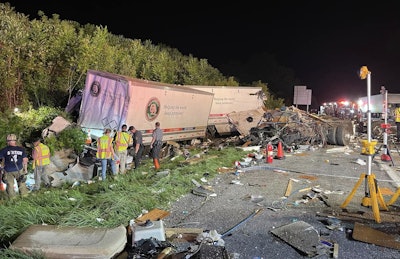
I have a license that allows me to operate a commercial vehicle with a gross combination weight in excess of 26,000 pounds.
It's a special license. You have to undergo some training and testing above and beyond that of a regular drivers license, and you have to pass a medical checkup every two years in order to keep it.
It makes sense. Rigs are sluggish in response to both acceleration and braking. They can, in instances of high wind, for example, be onerous. They're not simple to park. And they're long.
All of this holds true to recreational vehicles as well.
An RV hauling a 20-foot enclosed trailer crossed a median and rocketed into oncoming traffic Aug. 9 just before 9 p.m., hitting head-on a tractor trailer in a crash that killed five people on Interstate 81 in Franklin County, Pennsylvania. Police say the crash was caused by a blown driver's side steer tire on the RV.
Pennsylvania requires at least a Class B non-commercial license for single vehicles over 26,000 pounds and for multiple vehicles with combined weight over 26,000 pounds, but 34 other states don't require drivers of recreational vehicles to obtain any license other than a basic drivers license. In Alabama, I can drive a Mazda Miata and a 40-foot motorcoach with the same license, and that's completely insane.
There's really no reason anyone should be allowed to drive a vehicle as heavy and long as an RV or tow-behind camper without proper safety training and special licensure.
My dad is an RV'er, and he's got a nice one. I call it the Rock Star bus. It's big, it's roomy, and it's the kind of place you wouldn't mind spending a week or more because of the amenities. It's got it all. But, what my dad doesn't have is a special license to drive it. Why? Because he's not required to have one in Alabama.
My dad's a good driver. He's safe, and he's the kind of guy who checks his air lines, bakes and two dozen other things before he sets out on a trip because it's the smart and right thing to do. But for every one camper like my dad, I wonder how many just jump in and send it because they don't know any better because they've never been taught, trained and tested.
A steer-tire blow out can be a bad deal for even the best trained driver. Any time the proper mitigation procedure feels counter-intuitive, you know you're in a tough spot.
Your natural instinct once the truck starts to veer to the side of the blowout is to yank the wheel back the other way and climb on the brakes, and that's exactly the wrong thing to do. This is the very scenario where you need training to overtake instinct, and if you live in one of 34 states, you're not getting it.
Truck drivers industry-wide are scrutinized every time a single rig is involved in a crash, and this crash, while tragic, should get the same.
I don't know what the driver of the RV in this case did and didn't do when the tire gave out. We'll never know the small but important details that sent this family into oncoming traffic, but it's not as much about the what-ifs in the instance of this one crash as it is about the next one. And the next one. And so on.
There should be a universal, gross weight specific standard for operators of recreational vehicles (motorcoach and tow-behind) just like there is for operators of commercial vehicles.
This horrific crash, which took the life of an Old Dominion Freight Line driver, should start the conversation of minimum driver requirements and safety just like it would had the roles here been reversed.




